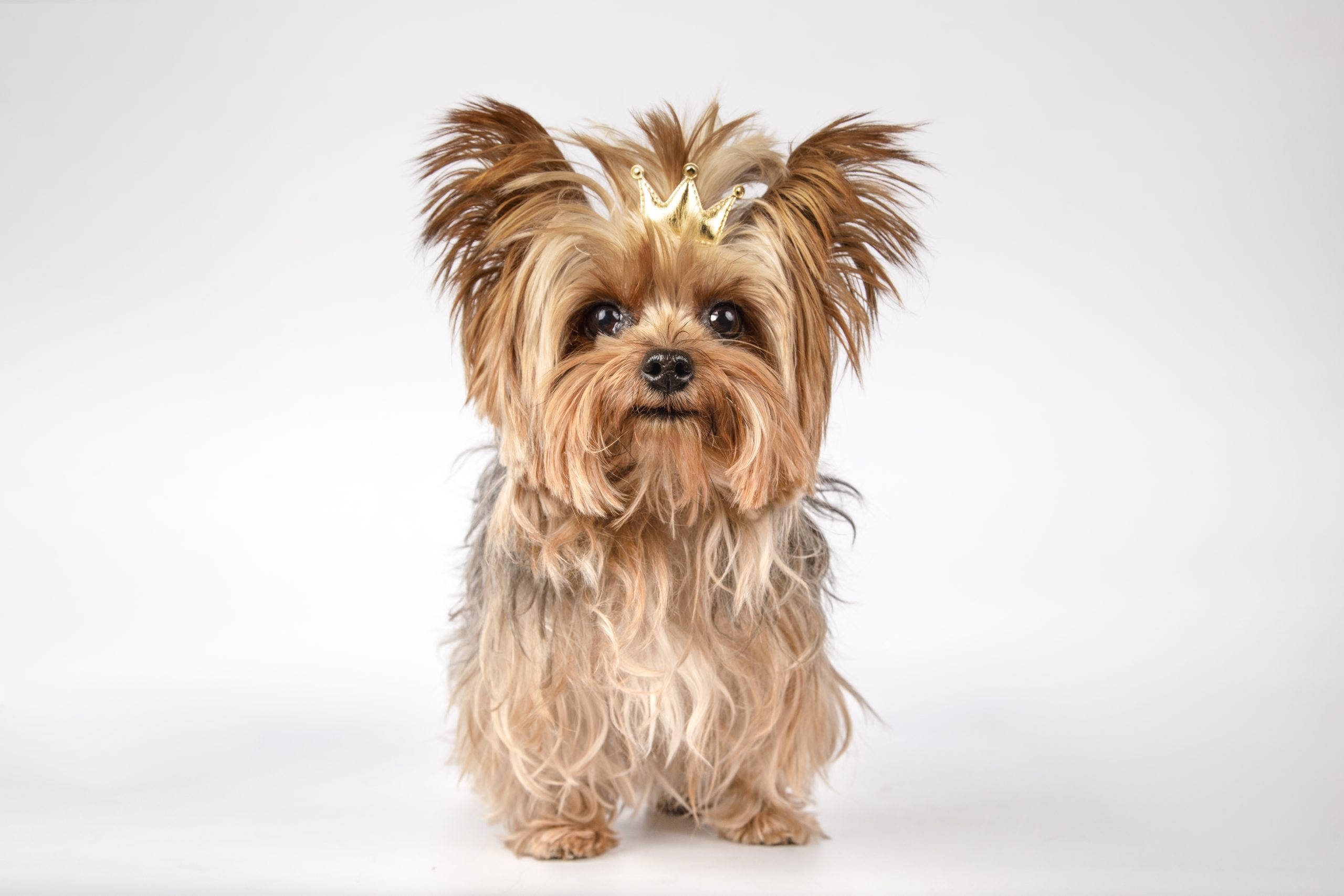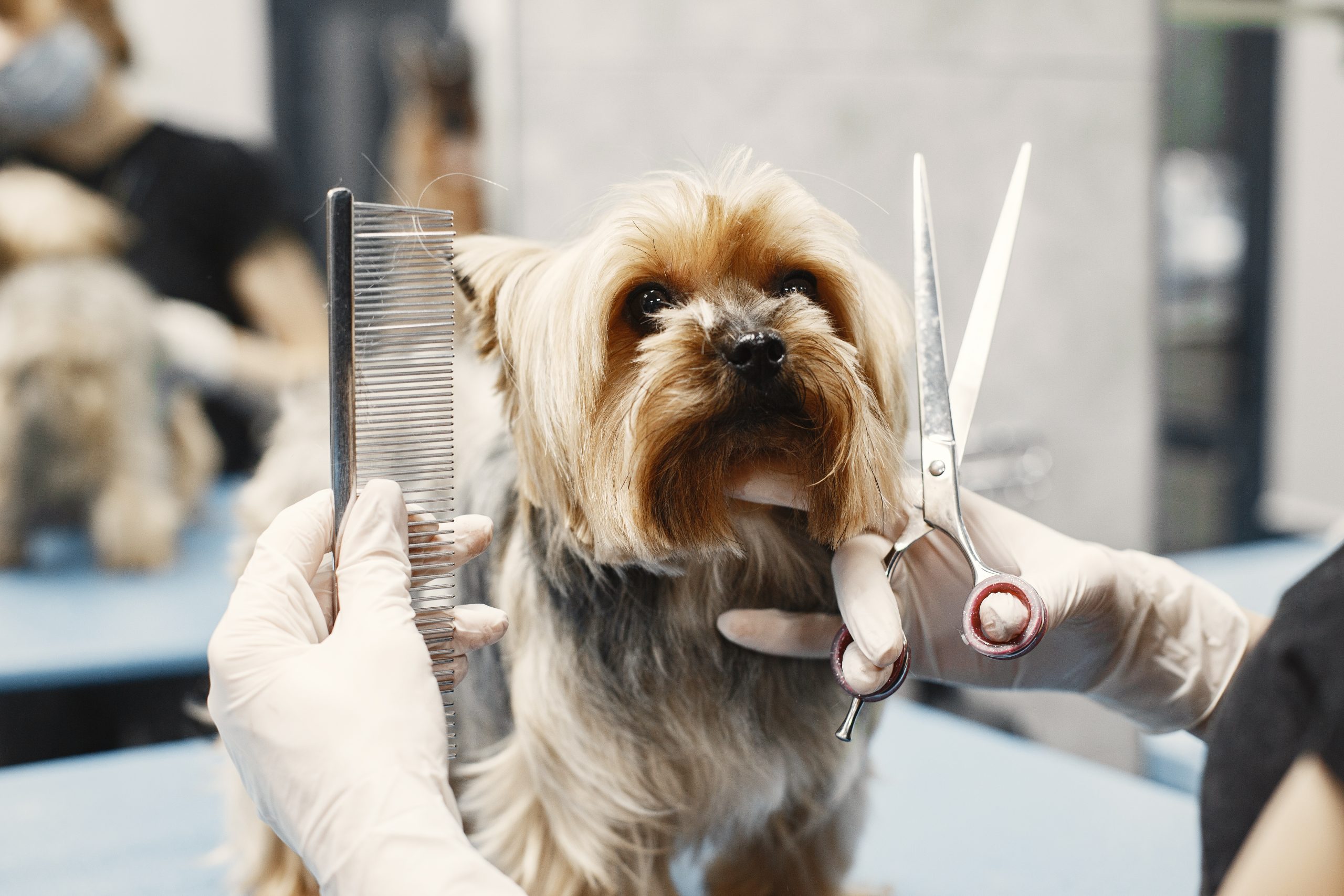Yorkshire has a super small and adorable appearance, making many people unable to resist their charm. In addition to their adorable appearance, they are also famous for their friendly, sociable, and active personality. If you want to learn about the origin and origins of this dog breed, continue reading the article below for more details!
Inkpawarts specializes in providing information about pet cat breeds, pet dogs, and other pets … Helping people better understand their pets.
Origin of Yorkshire
Yorkshire originate from England. In British history, as the country developed its industrialization, a group of Scottish workers moved to Yorkshire to work and brought their small dog with them on this trip.
In addition, this breed is also known as the Clydesdale Terrier. Initially, Yorkshire dogs were bred to hunt termites and rats in the woolen mills of Yorkshire in the 19th century. After a while, the breed became popular as a pet, mainly due to its adorable appearance. their love and close personality.
Breeders later organized crosses between the Clydesdale Terrier and many other pet breeds such as Paisley, Tan English Terrier, Waterside Terrier, and many others. The result is the appearance of the super adorable Yorkshire breed. Although they are small in size, they inherit all the personality and outstanding characteristics from their parents.
Yorkshire dog characteristics
Beauty comes from appearance
Yorkshire Terrier dogs have a lovely and unique appearance:
- Head: The Yorkshire Terrier puppy’s head is small and round. Black nose and long nose bridge. The eyes are round, black and bright. The highlight is the small triangular ears, which are often red and very adorable.
- Body: The body of the Yorkshire Terrier puppy is balanced and proportional to the entire body. The tail is often cropped, the back is short, and the tail is more prominent than the back.
- Limbs: The Yorkshire Terrier’s legs are straight and covered with long hair. Small feet with black nails. Long hair covers the feet and the skin is often invisible.
- Fur: They are born with pure black fur. From 3 months of age onwards, their fur color gradually fades to lighter. As they mature, at over a year old, their fur may appear many gray stripes. This dog’s hair is long, smooth, downy-like and covers the entire body.

Personality in Yorkshire
Yorkshire often shows a friendly and cute personality, especially with children. They are suitable for small spaces like apartments because their small size is very suitable for this environment. This dog breed is also very agile and intelligent, so it needs to be constantly active.
However, you should not keep them indoors for too long, because this can make them appear shy and affect both physical and mental health. This breed enjoys social interaction and should be taken outside to explore the world around them.
In addition, Yorkshire has a gentle personality, but care should be taken when they come into contact with other dogs or other species to ensure their safety, as their small size can make them susceptible to pressure from other dogs.
How to Raise and Care
- Habitat: Yorkshire dogs like to live in warm and airy environments. Make sure your apartment or house is well-lit and a safe place for them. Avoid dampness and mold to prevent skin health problems.
- Nutrients: Provide them with quality food. Ensure the diet includes adequate amounts of protein, carbohydrates, and fats. Use high-quality feed and add fish oil to your diet to protect your skin and coat.
- Maintain hygiene: Maintain your Yorkshire dog’s hygiene by bathing regularly and cleaning its ears, teeth, and nails. Doing this helps maintain overall health and prevent skin and coat health problems.
- Physical activity: This dog is very agile and needs regular exercise. Take them out for walks and play interactive games to maintain their health and good mood.
- Regular health checks: Regularly visit the veterinarian for health checks and necessary vaccinations. Consider vaccinations and insect repellents to protect them from common health risks.
- Exposure: Expose them to many different people and species from an early age. This helps them become friendlier and more comfortable when encountering new situations.
Hair Hygiene And Care
Regarding the hygiene of Yorkshire dogs, here are important points to note:
- Daily brushing: Their fur needs to be brushed daily to prevent tangles and create comfort for the dog. Brushing helps remove dead skin cells and makes their skin feel refreshed.
- Regular bathing: Bathing should be done periodically, but not too often to avoid drying out the dog’s skin. Use dog care products specifically designed for bathing, with shampoos and shower gels designed to protect their skin and coat from harmful bacteria.
- Dry your fur after bathing: After bathing, dry your long fur to avoid wet fur. Damp fur can lead to skin problems such as dermatitis and sores.
- Nail and ear care: Periodically check and trim your Yorkshire dog’s nails to avoid excessively long nails. Clean their ears to prevent ear problems.
- Check the eye and mouth areas: Take care of your dog’s eye and mouth areas to ensure good hygiene. Clean the eye area if necessary to avoid tear clogging.

Pay attention to the vaccination of dogs
- Regular vaccination: Take your Yorkshire dog to the veterinarian for advice on the appropriate vaccination schedule and to vaccinate on a regular schedule each year. Regular vaccination helps protect dogs from many dangerous diseases.
- Comply with vaccination schedule: Owners need to comply with the vaccination schedule recommended by the veterinarian. This ensures that your Yorkshire Dog is protected from dangerous diseases such as hepatitis, pneumonia, and parvo.
- Take care of overall health: In addition to vaccination, owners also need to take care of overall health. This includes providing good nutrition, hygiene care, regular checkups, and taking your dog to the vet if there are abnormalities or health problems.
Common diseases
Common diseases in Yorkshire dogs can include hepatitis, pneumonia, gastritis, and dental problems. Providing a regular and nutritious diet along with proper hygiene care can help reduce the risk of disease.
Epilogue
The Yorkshire Dog, a beautiful and cute breed, is known for its distinctive appearance and friendly personality. Caring for and nurturing them requires love and attention. Inkpawarts hopes the above article will help you understand more about this lovely dog

